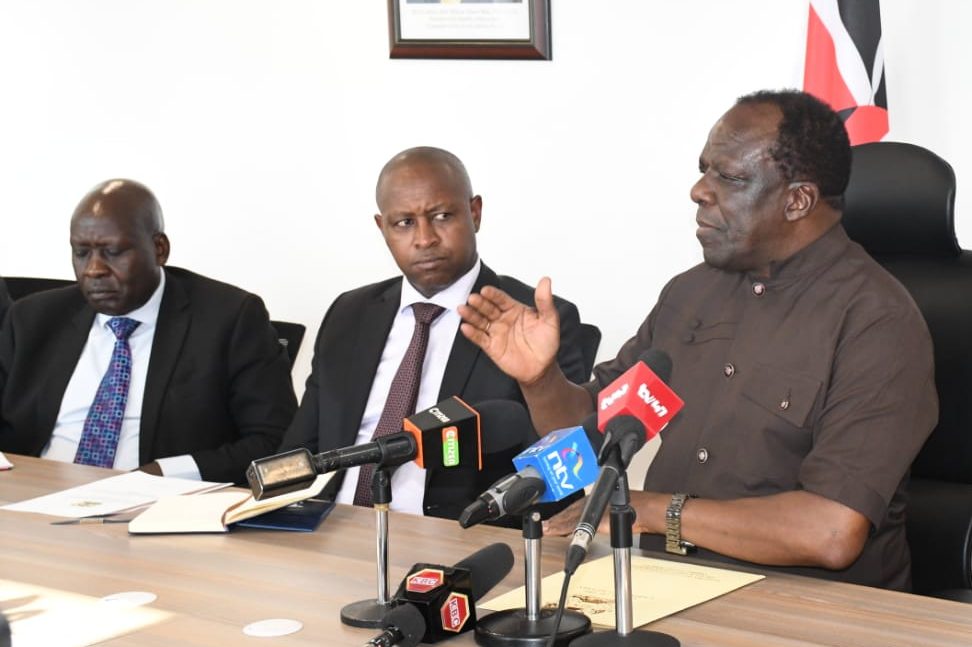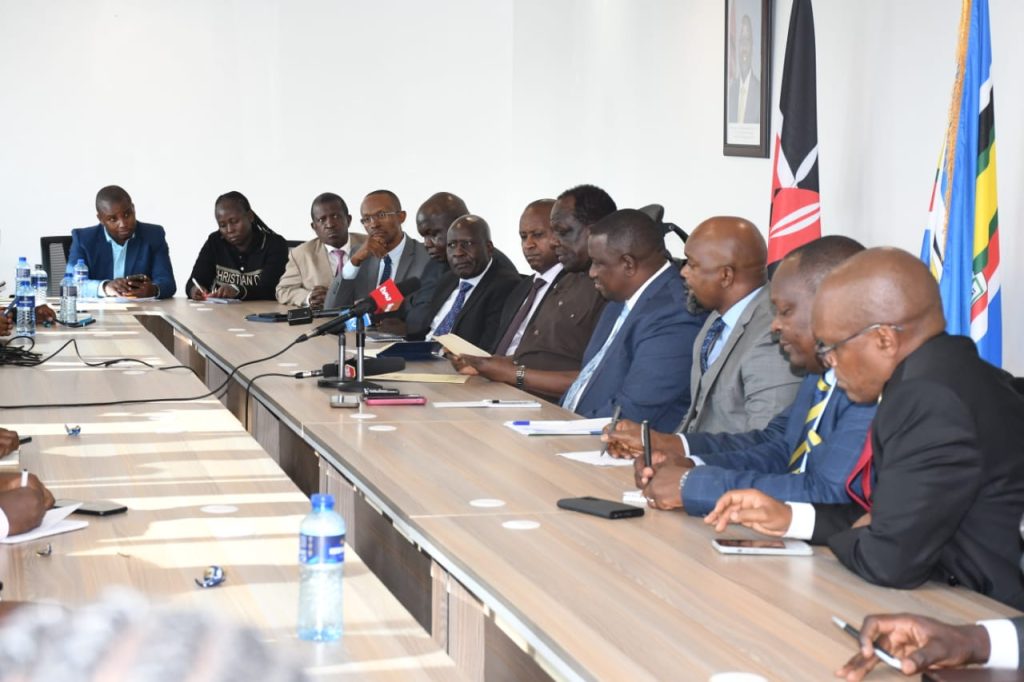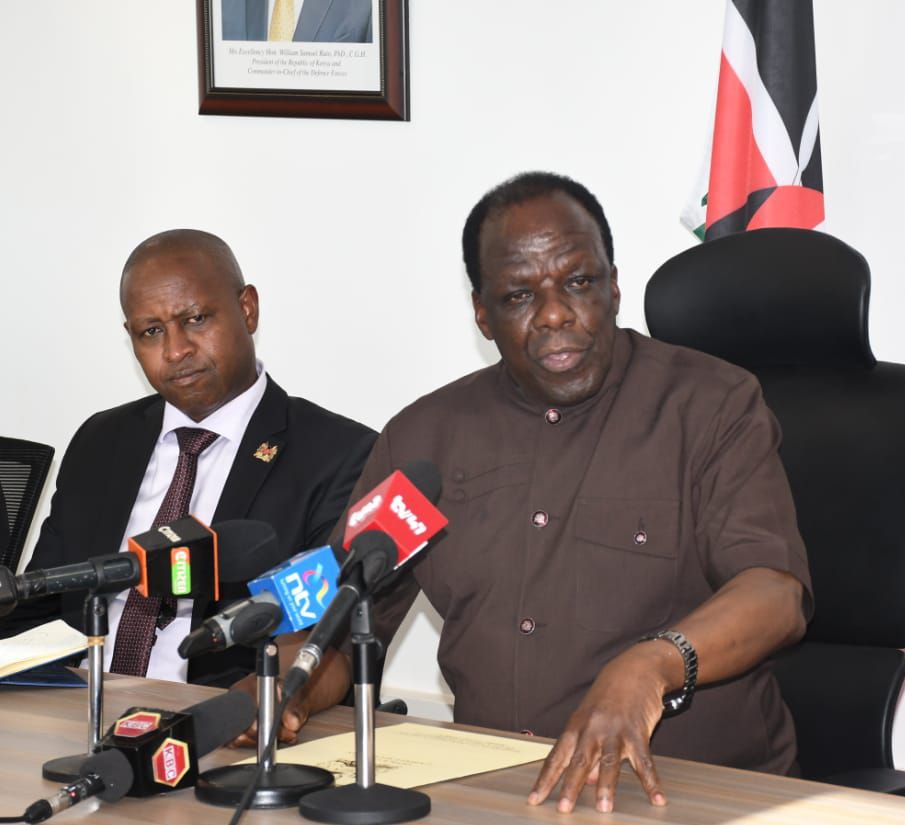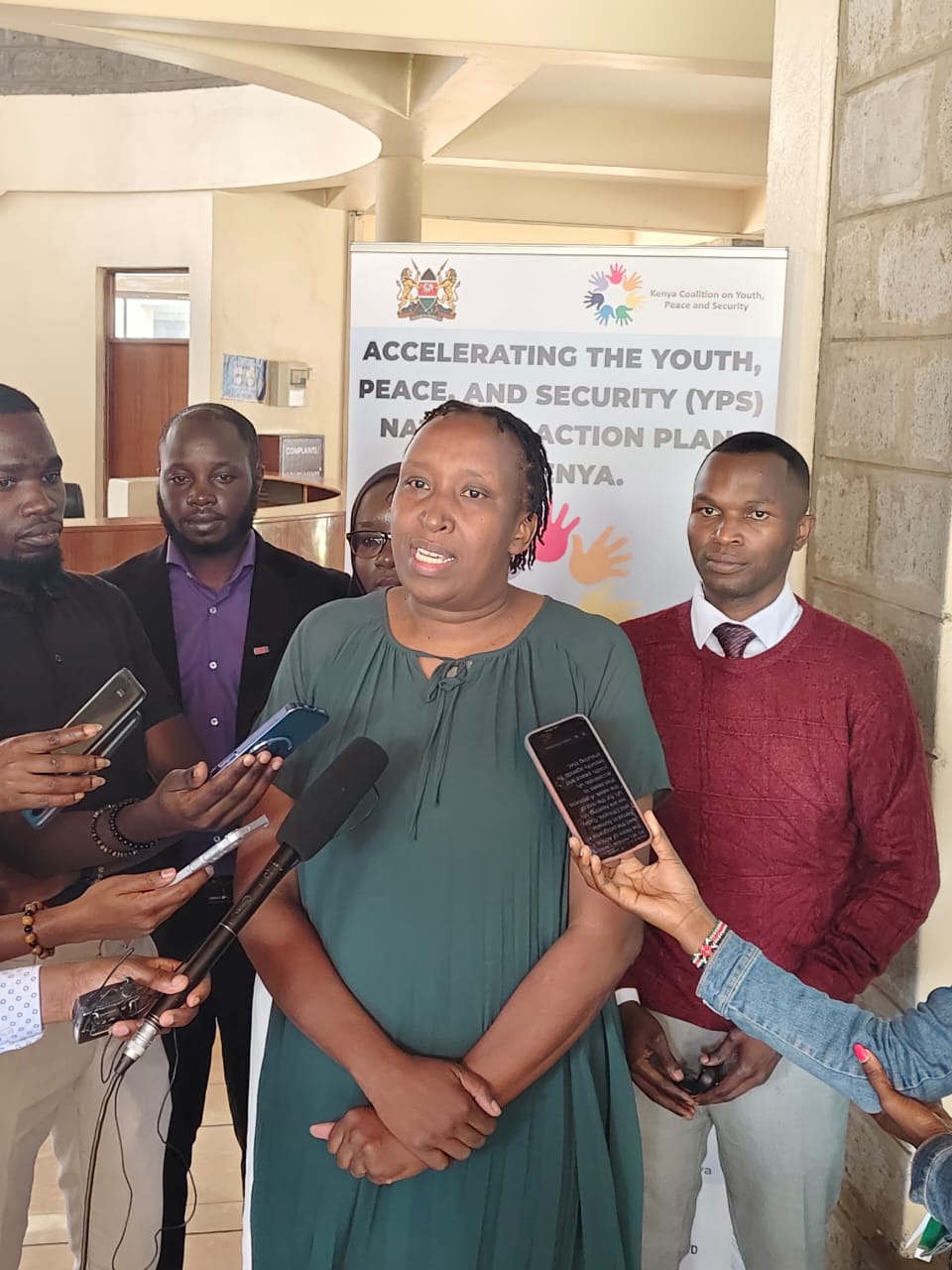The member Savings and Credit Cooperative Organizations (SACCOs) has surpassed the Ksh1 trillion mark for the first time in June 2023, reaching Ksh1.047 trillion.
This figure, a remarkable achievement amidst ongoing economic challenges, signals the resilience of SACCO members and their continued commitment to saving, borrowing, and investing within the cooperative framework.
The announcement was made by Hon. FCPA Dr. Wycliffe Ambetsa Oparanya, the Cabinet Secretary for the Ministry of Cooperatives and MSMEs Development, during a press briefing on the current status of the Kenya Union of Savings and Credit Cooperatives (KUSCCO) Limited.
Oparanya confirmed that significant steps had been taken by investigative agencies to address the gross errors and omissions revealed in the audit. These include initiating legal and administrative action, supporting litigation for criminal and economic crimes, and pursuing asset recovery.
“We are confident that all those who were involved in any irregularities at KUSCCO will face the full force of the law,” Oparanya assured.

The audit report and the subsequent actions have been welcomed as a sign of the government’s commitment to transparency and accountability within the SACCO sector. This move is expected to restore confidence in SACCOs, both from members and the public, as efforts to rebuild the sector continue.
Speaking to members of the press, Oparanya highlighted the critical role SACCOs continue to play in the financial well-being of millions of Kenyans, in line with the government’s Bottom-Up Economic Transformation Agenda.
Despite global and local economic shocks, SACCOs in Kenya have managed to maintain a strong financial position, paying out billions of shillings to members as dividends and rebates.
These payments have been made even as provisions for potential losses at KUSCCO were accounted for, demonstrating the sector’s stability and capacity to protect members’ deposits.
“This remarkable milestone is a testament to the strength and resilience of Kenya’s cooperative movement,” said Oparanya.
“Even in the face of economic headwinds, members have continued to show confidence in SACCOs as reliable vehicles for saving and investing.”SACCOs remain a crucial component of Kenya’s financial ecosystem, particularly for those in rural and underserved communities.
They provide accessible financial services that enable members to achieve personal and business goals, such as education, housing, and entrepreneurship.

The press briefing also addressed the much-anticipated forensic audit of KUSCCO’s past financial dealings. The Ministry had earlier commissioned PricewaterhouseCoopers (PwC) to conduct a thorough investigation into the financial mismanagement that had plagued the institution.
On February 11, 2025, the Ministry officially handed over the PwC forensic audit report to the Inspector General of Police for further investigation and action.
Oparanya also commended the interim board that was appointed to oversee the reform process at KUSCCO. The board successfully completed several key tasks, including overseeing the forensic audit, reconstructing KUSCCO’s books and accounts to reflect the true state of affairs, and developing a recovery strategy for the union.
The Ministry announced the formation of a new nine-member board, which will be tasked with reviving KUSCCO and rebuilding trust in the institution. This board will have a three-year mandate and is expected to play a critical role in stabilizing the organization and ensuring its long-term sustainability.
“We believe this new board, with the right expertise and governance framework, will be able to steer KUSCCO in the right direction and restore its status as a secure investment vehicle for SACCOs across the country,” Oparanya stated.### Legislative Reforms to Strengthen SACCO SectorIn addition to the internal reforms at KUSCCO, Oparanya highlighted legislative efforts aimed at modernizing the SACCO sector.
On March 11, 2025, the Cabinet approved several amendments to the Savings and Credit Cooperatives (SACCOs) Act of 2008, which will be captured in the Sacco Societies (Amendment) Bill, 2023. These reforms aim to modernize the financial and technological operations of SACCOs to enhance their efficiency and sustainability.
Among the key reforms is the introduction of a SACCO Shared Services Framework and a Central Liquidity Facility (CLF). These initiatives will enable SACCOs to engage in inter-SACCO transactions, access short-term loans, and participate more effectively in the National Payment System.
To ensure these reforms are implemented smoothly, the government has appointed a Committee of Experts to review the SACCO Societies Act and its regulations.”We are committed to ensuring that SACCOs have the regulatory framework they need to thrive in today’s dynamic financial environment,” Oparanya noted. “The proposed reforms will strengthen SACCO governance, improve liquidity management, and enhance transparency across the sector.”
One of the major reforms announced during the briefing was the repositioning of the SACCO Liquidity Fund (SLF), formerly known as the Central Finance Fund (CFF). The SLF, which had previously operated under KUSCCO, will now function as a secondary cooperative under the regulation of the SACCO Societies Regulatory Authority (SASRA).
The SLF will have its own independent board and CEO, ensuring a clear separation from KUSCCO’s core functions. This move is intended to improve the management and transparency of the fund, which is responsible for providing liquidity to SACCOs that may face short-term cash flow challenges.
“We believe that repositioning the SLF under SASRA will enhance its operational efficiency and accountability,” Oparanya said. “It will also ensure that SACCOs can access liquidity when needed, without compromising their financial stability.”
Call to Action: Empowering Kenyans Through CooperativesIn his closing remarks, Oparanya emphasized the importance of cooperatives and SACCOs in empowering Kenyans economically. He called on stakeholders to use the 2025 International Year of Cooperatives, as proclaimed by the United Nations, to showcase the positive impact of cooperatives on communities.
“Co-operatives and SACCOs remain the most suitable economic model to empower our people,” he said. “Let us use this opportunity to demonstrate the incredible value that cooperatives bring to our society.”As the Ministry continues to implement its reforms and strategic initiatives, Oparanya expressed confidence that Kenya’s cooperative movement would not only recover from its recent challenges but also thrive in the years to come.
“Our actions are aimed at ensuring better protection of SACCO deposits, minimizing government bailout risks, and strengthening the cooperative financial sector,” he added.
“We are committed to building a stronger, more resilient cooperative sector that delivers value to millions of Kenyans.” The CS concluded.
This press briefing marks a turning point for KUSCCO and the SACCO sector in Kenya, signaling a new era of accountability, growth, and financial empowerment for the country’s cooperative movement as the year is marked as a cooperative year 2025 by the United Nations.




